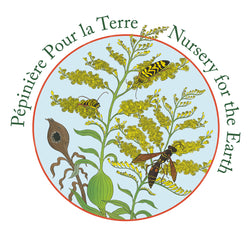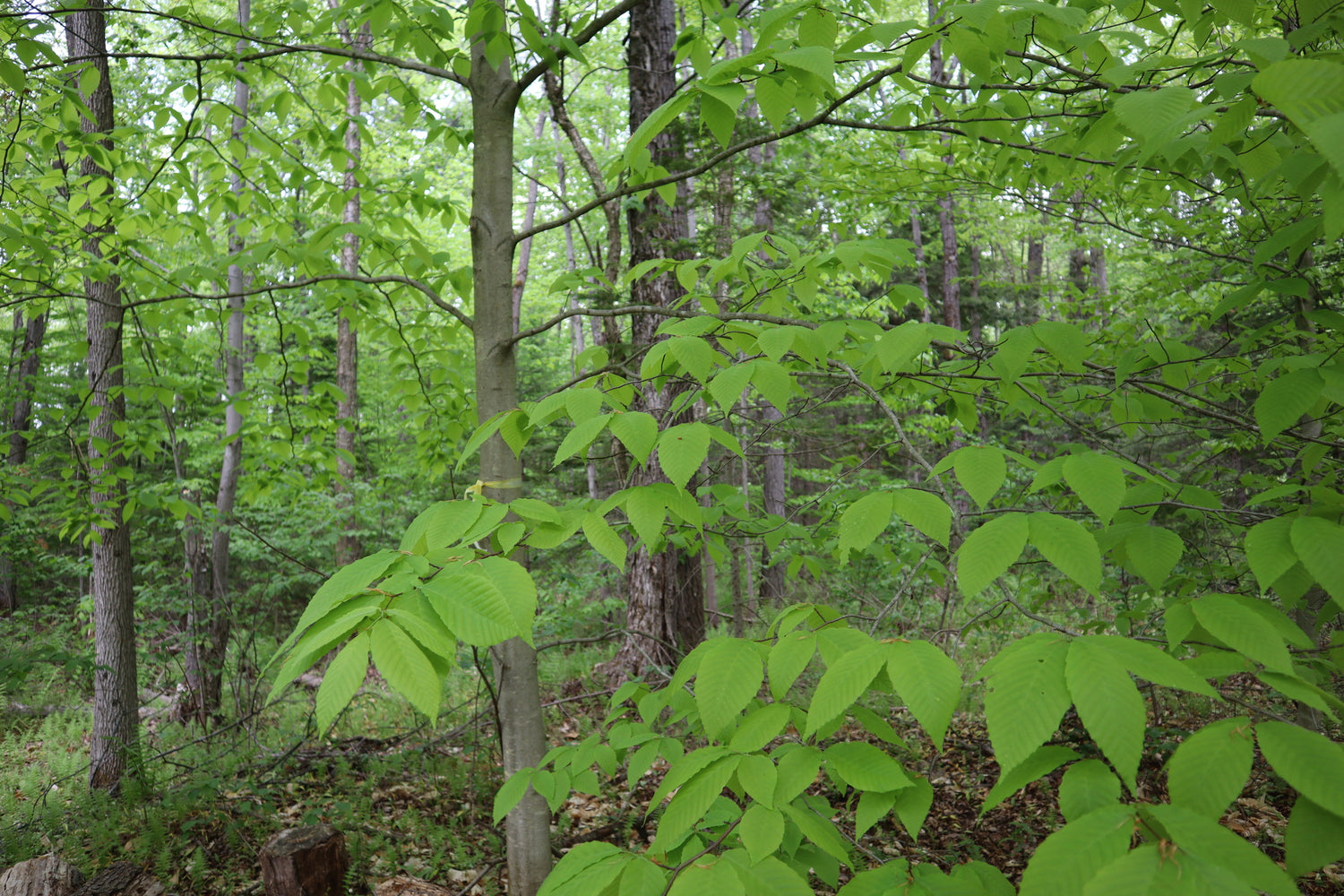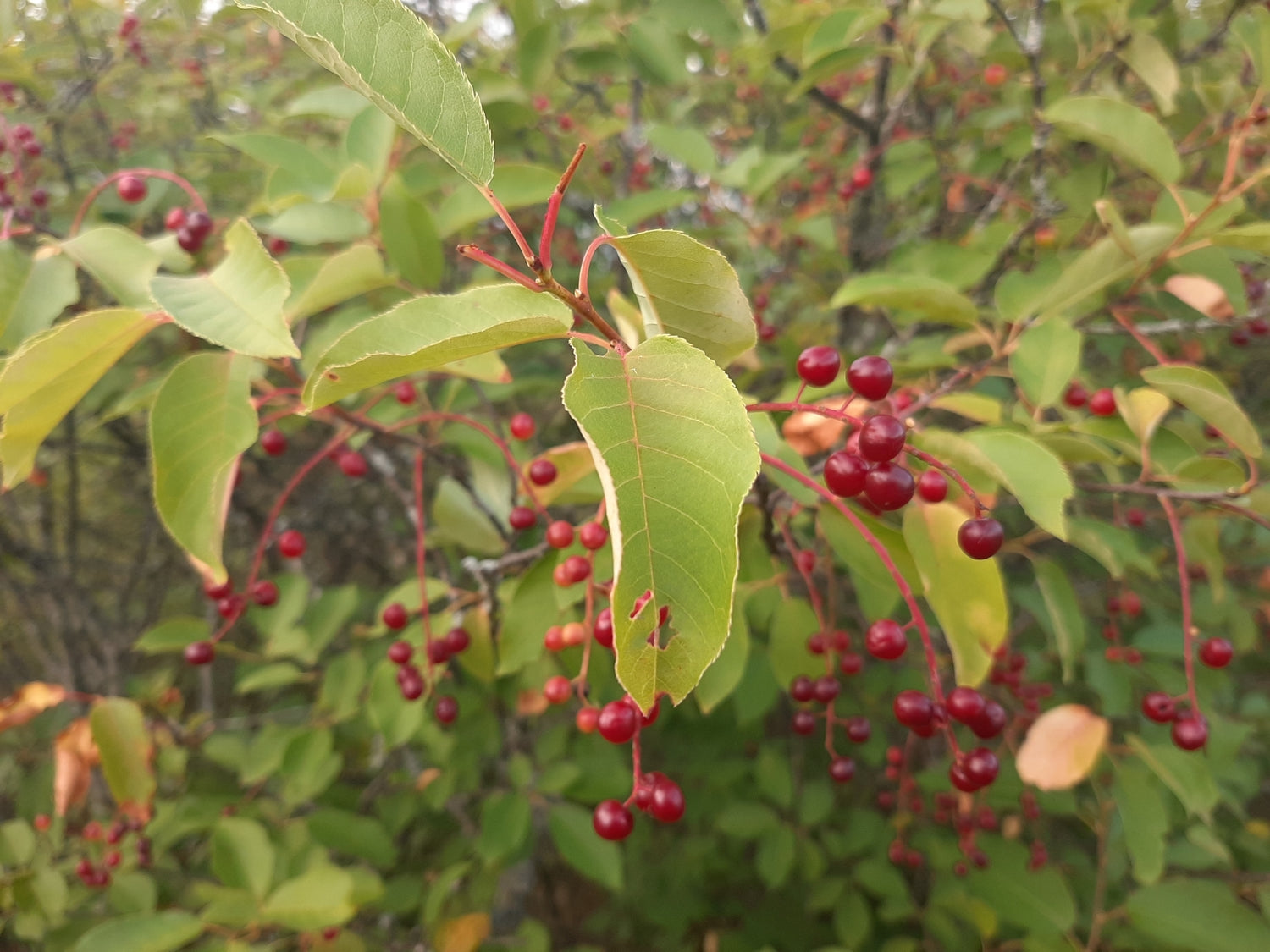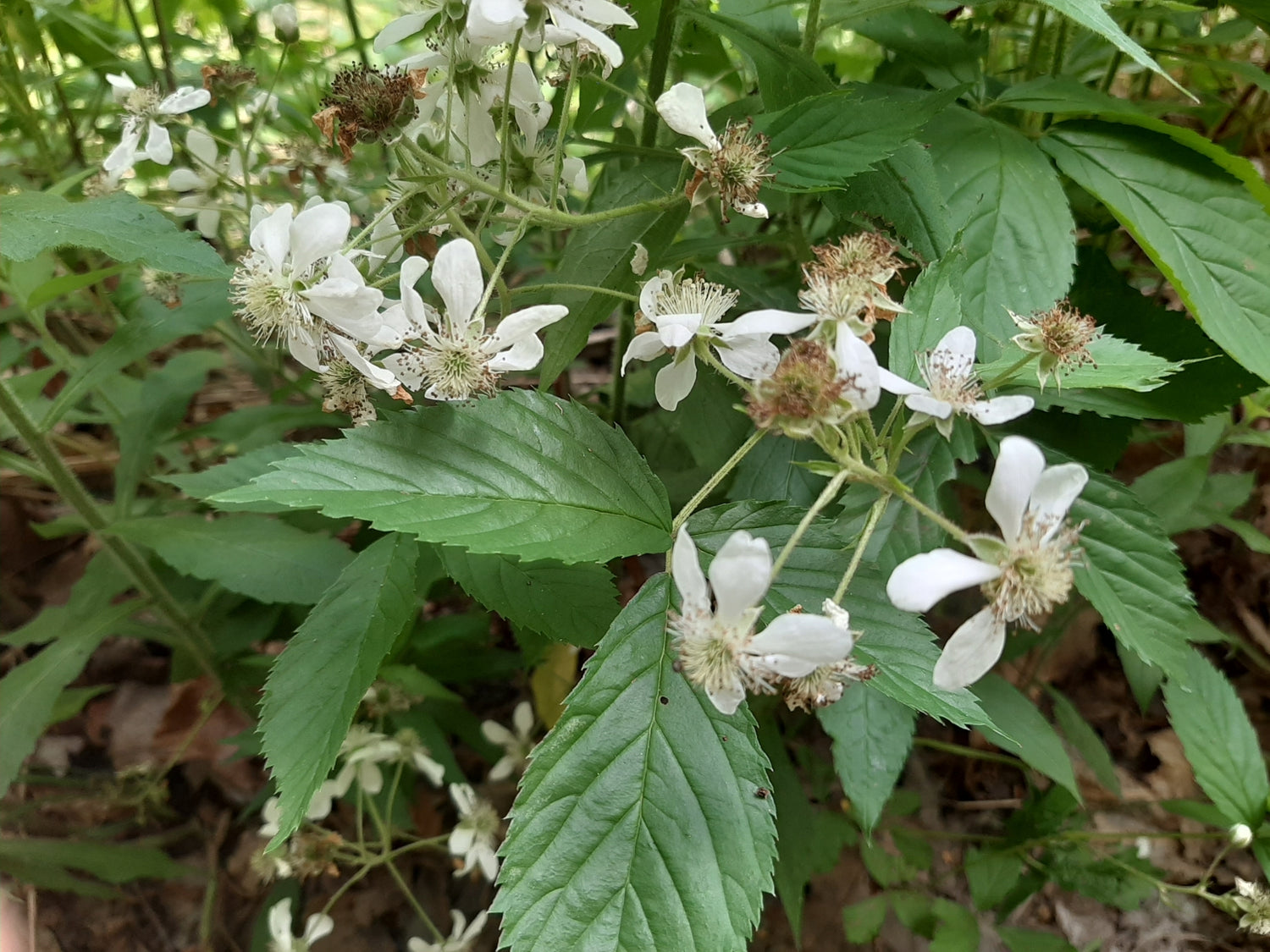Nursery for the Earth
Helianthus tuberosus (Fr: topinambour | En: Jerusalem artichoke)
Couldn't load pickup availability
Jerusalem Artichoke
Helianthus tuberosus
Alternative names: Sunchoke, Iroquois Potato
French: Topinambour
Helianthus tuberosus, commonly known as Jerusalem Artichoke, is a perennial sunflower native to eastern North America. It has long been cultivated by First Nations communities, especially the Haudenosaunee, hence the traditional name “Iroquois potato.”
The plant produces edible tubers that are rich in inulin, a dietary fibre that acts as a prebiotic. While extremely nutritious and low in starch, inulin can cause digestive upset (gas, cramps) in those not accustomed to it—hence the humorous nickname “fartichoke.”
The tubers grown at our nursery originate from wild-type plants collected along river shores, and retain diverse shapes and colours not typically seen in commercial cultivars. In addition to its value as a food crop, it’s a striking ornamental plant, with bright yellow flowers that bloom from late summer to late fall, often persisting through the first frosts and even snowfalls—long after most other wildflowers have faded.
H. tuberosus spreads vigorously through underground rhizomes and should be planted in a contained or designated area, or with other aggressive species that can compete. It can be controlled by mowing, and thrives in sunny, moderately moist soils.
Height: 1.5 to 5 m
Bloom time: August to November
Light: Full sun
Moisture: Moderate
Soil: Rich, loose, well-drained preferred
Habitat: Fields, forest edges, riverbanks
Ecological benefits: Late-season nectar source, soil stabilizer
Edible: Yes – edible tubers (high in inulin; may cause digestive sensitivity)
Share









